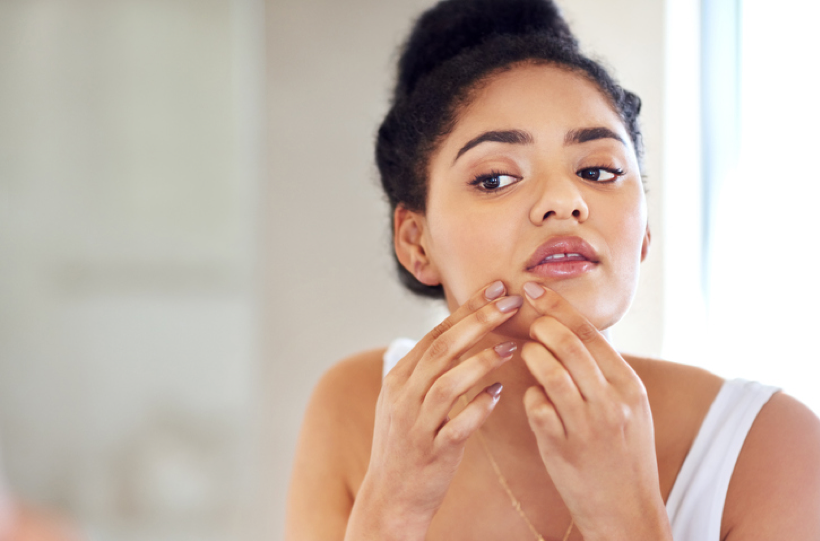Votre panier est vide
Popping 3 Acne Myths on Your Way to Clearer Skin
There are endless myths about acne – the one skin condition experienced by most people at some stage in their life. But, in order to properly treat acne, you must first be able to differentiate between tested truths and unsubstantiated tales.
Here are three well known acne myths and some proven facts.

Popping Acne Myths.
Myth #1 – Acne is caused by makeup, stress, sunscreen, chocolate and sodas
Although all these factors may exacerbate acne, the actual cause is one of four:
- Bacteria.
- Cell proliferation.
- Gland rupture.
- Sebum production.
More about these four factors here
So what affect do these exacerbating factors have on acne? Let’s look at each one.
- Makeup could indeed clog your pores, which might cause acne, but the right type of makeup won’t. Look for powder mineral foundations containing zinc oxide, titanium dioxide and silica.
- Stressmight play a role but no study has conclusively proven that stress hormones actually cause acne.

stress. Photo: Istock.
- Chocolate and caffeine in soda drinkshave long been believed to cause acne, but dermatologists and researchers are in contention over whether this is actually true. Still, minimizing the consumption of sugar is great for your skin and overall health so it’s always a good idea.
- Sunscreen could indeed irritate the skin and cause inflammation, but only the chemical type. Therefore, opt for physical sunscreens that, just like the mineral makeup, contain zinc oxide and titanium dioxide.
Myth #2 – Acne is a teenage issue
Unfortunately, that’s just not true. Plenty of researches show that many people suffer from acne in their 30s, 40s and even 50s. it is true, though, that teen and adult acne is not the same. While teen acne is caused by both hormonal and genetic factors, as well as increased oil production that is part of puberty, adult acne is usually caused by hormonal fluctuations and tends to be deeper and more painful and take longer to heal.
Myth #3 – Washing, popping, cleansing or… toothpaste can treat acne
Let’s go through these one by one: yes, toothpaste can dry out your pimples but it’s not intended for use on your skin and can cause irritation; popping a pimple is actually the worst thing you can do. It can make the situation worse and cause trauma to your skin; using cleansers or washing your face cannot treat or prevent acne, although it’s advised to do both regularly to maintain clean skin. It’s also important to mention that washing your face more than twice a day could dry your skin an cause irritation.
So, what’s the best way to treat acne?

Using the right products is the best course of action. In general, the right ingredients for treating acne focus in unclogging the pores and getting rid of the bacteria. Therefore, look for products that control and regulate antimicrobial activity, moderate sebum secretion, renew the skin and repair scar tissue, and reduce inflammation.




